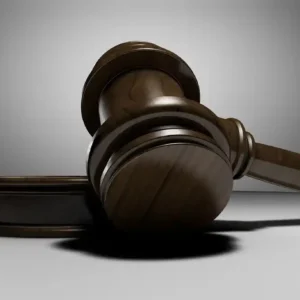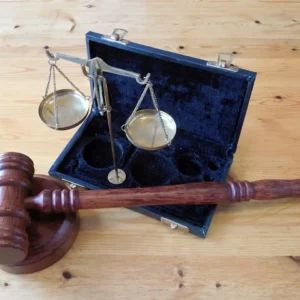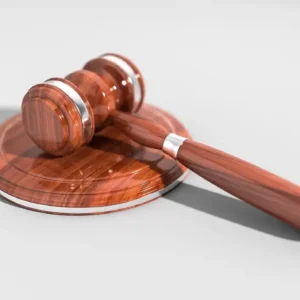Throughout history, there have been numerous legal cases that have left an indelible mark on society. These landmark cases have not only shaped the course of justice but have also influenced societal norms and redefined legal principles.
From landmark rulings that abolished segregation to groundbreaking decisions that safeguarded individual rights, this article delves into some of the most famous legal cases that have shaped history. By examining the background, key players, and enduring impacts of these cases, we can gain a deeper understanding of the power of the law in transforming society.
Brown v. Board of Education (1954):
One of the most significant legal cases in American history, Brown v. Board of Education, addressed the issue of racial segregation in public schools. In a unanimous decision, the Supreme Court declared that separate educational facilities for different races were inherently unequal and violated the Fourteenth Amendment.
This landmark ruling paved the way for desegregation and became a cornerstone in the civil rights movement, challenging discriminatory practices and inspiring further legal advancements in the pursuit of equality.
Roe v. Wade (1973):
The case of Roe v. Wade centered around the issue of abortion rights in the United States. The Supreme Court’s decision, which recognized a woman’s constitutional right to privacy and her ability to make decisions regarding her body, has been highly controversial and influential.
This ruling established the legal framework for reproductive rights, sparking ongoing debates about the balance between individual autonomy and state interests. The case continues to shape discussions surrounding women’s rights and has had a profound impact on subsequent legal battles.
Miranda v. Arizona (1966):
Miranda v. Arizona is a landmark case that has significantly impacted the rights of criminal suspects. The Supreme Court’s decision in this case mandated the “Miranda warning,” which requires law enforcement officials to inform suspects of their constitutional rights, including the right to remain silent and the right to an attorney.
This ruling aimed to protect individuals from self-incrimination and ensure fair treatment within the criminal justice system. The Miranda warning has become a fundamental aspect of law enforcement practices and has played a crucial role in safeguarding the rights of suspects.
Plessy v. Ferguson (1896):
Plessy v. Ferguson is a case that exemplifies the historical struggle against racial segregation. In this case, the Supreme Court upheld the constitutionality of “separate but equal” facilities, enabling the continued enforcement of racial segregation laws.
Although this ruling was later overturned by Brown v. Board of Education, it had a profound impact on American society, reinforcing racial divisions and contributing to systemic discrimination. Plessy v. Ferguson serves as a stark reminder of the challenges faced in the fight for equality and the enduring consequences of legal decisions.
United States v. Nixon (1974):
United States v. Nixon involved the Watergate scandal and the subsequent resignation of President Richard Nixon. The Supreme Court’s ruling in this case upheld the principle of executive privilege but also established limits on its scope.
This decision demonstrated the judiciary’s ability to hold the executive branch accountable and emphasized the importance of transparency and checks and balances in a democratic system. United States v. Nixon reaffirmed the rule of law and bolstered public trust in the legal system.
Brown v. Mississippi (1936):
Brown v. Mississippi is a case that shed light on the issue of police brutality and the use of coerced confessions. The Supreme Court’s ruling in this case established that confessions obtained through physical torture or other forms of coercion were inadmissible as evidence.
This decision underscored the importance of due process and fair treatment within the criminal justice system, setting a precedent that helped protect individuals from abusive practices. Brown v. Mississippi highlighted the role of law in safeguarding individual rights and ensuring justice is served.
Loving v. Virginia (1967):
Loving v. Virginia was a landmark case that struck down laws banning interracial marriage in the United States. The Supreme Court’s decision in this case declared that marriage is a fundamental right that should be available to all individuals, regardless of their race.
This ruling challenged deeply ingrained racial prejudices and marked a significant step towards dismantling institutionalized discrimination. Loving v. Virginia not only celebrated love and equality but also set a precedent for future legal battles related to marriage equality and the protection of civil rights.
Marbury v. Madison (1803):
Marbury v. Madison is a pivotal case in American legal history that established the principle of judicial review. In this case, the Supreme Court asserted its authority to interpret the constitutionality of laws and determine their validity.
This landmark decision solidified the judiciary’s role as a check on the other branches of government and ensured the preservation of the rule of law. Marbury v. Madison laid the foundation for the modern judicial system and emphasized the importance of an independent judiciary in upholding the constitution.
Gideon v. Wainwright (1963):
Gideon v. Wainwright addressed the issue of the right to counsel in criminal proceedings. The Supreme Court’s ruling in this case established that the Sixth Amendment guarantees the right to legal representation, even for individuals who cannot afford an attorney.
This decision ensured that the criminal justice system provides fair and equal treatment to all, regardless of socioeconomic status. Gideon v. Wainwright significantly expanded access to justice and highlighted the importance of effective legal representation in protecting individual rights.
Obergefell v. Hodges (2015):
Obergefell v. Hodges is a groundbreaking case that legalized same-sex marriage in the United States. The Supreme Court’s decision in this case recognized that the fundamental right to marry applies to same-sex couples, ensuring equal treatment and dignity under the law.
This ruling marked a significant milestone in the fight for LGBTQ+ rights and sparked a wave of progress worldwide. Obergefell v. Hodges represents a pivotal moment in the ongoing struggle for equality and demonstrates the transformative power of the law in challenging societal norms and promoting inclusivity.
Roe v. Wade (1973):
Roe v. Wade is a case that has remained highly controversial and continues to shape public discourse on reproductive rights. The Supreme Court’s decision in this case recognized a woman’s constitutional right to choose to have an abortion, subject to certain limitations. This ruling has been fiercely debated and has spurred ongoing legal and political battles concerning abortion access, state regulations, and the balance between women’s rights and fetal rights. Roe v. Wade remains a touchstone in the fight for reproductive justice and remains a pivotal legal precedent.
Brown v. Board of Education (1954):
Brown v. Board of Education is a case that forever transformed the landscape of racial segregation in schools. The Supreme Court’s decision in this case declared that separate educational facilities for different races were inherently unequal, overturning the “separate but equal” doctrine established in Plessy v. Ferguson.
This landmark ruling set in motion a series of events that led to the desegregation of public schools, marking a significant victory in the civil rights movement. Brown v. Board of Education demonstrated the power of the law in challenging deeply ingrained prejudices and promoting equality.
Conclusion
In conclusion, the famous legal cases discussed in this article have played a pivotal role in shaping history and leaving a lasting impact on society. These landmark rulings have challenged discrimination, expanded individual rights, and set legal precedents that continue to guide the pursuit of justice.
From Brown v. Board of Education to Roe v. Wade and Marbury v. Madison, these cases have reshaped societal norms, advanced civil rights, and emphasized the importance of an independent judiciary. They serve as a testament to the transformative power of the law and remind us of the ongoing struggle for equality and justice in our ever-evolving world.







“more post please…”
Good